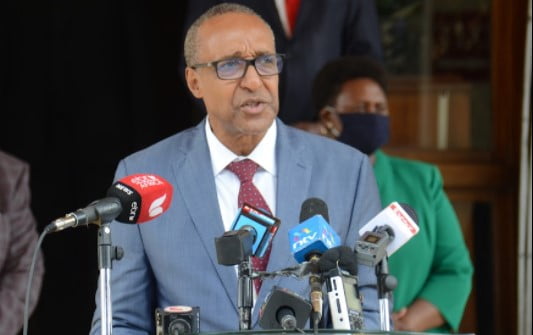The United States (US) of America has revoked the entry visa for the prosecutor of the International Criminal Court (ICC), Fatou Bensouda.
The decision is thought to be the US response to Ms Bensouda’s investigation into possible war crimes by American forces and their allies in Afghanistan.
“We can confirm that the US authorities have revoked the prosecutor’s visa for entry into the US,” Bensouda’s office told Reuters news agency in an email.
It said it understood the move should not impact Bensouda’s travel to the US to meet her United Nations (UN) obligations.
The Netherlands-based ICC is not a UN court, but Bensouda travels regularly to brief the UN Security Council on cases referred to The Hague by the UN body.
Bensouda has been investigating alleged war crimes by all parties in the conflict in Afghanistan since November 2017, including the possible role of US personnel in relation to the detention of suspects.
ICC judges are still reviewing materials and have not yet handed down a decision on whether to open a formal investigation in Afghanistan.
A State Department spokesman said members of international organisations planning official travel to the UN could apply for diplomatic visas.
“We recommend that applicants apply as early as possible to maximize the chances of being found eligible,” the spokesman said.
The US is not a member of the ICC, along with other major powers Russia and China.
The office of the prosecutor said on Thursday that Bensouda would exercise her duties “without fear or favour”.
Bensouda said in a meeting with reporters earlier this week that she and her office remain “fully committed” to their mandate.
“[We] will continue to honour our legal duty undeterred,” Bensouda said on Tuesday.
#ICC Prosecutor #FatouBensouda w/t African journalists: “I, along with my Office, remain fully committed to our independent & impartial mandate under #RomeStatute & will continue to honour our legal duty, #undeterred” #justicematters pic.twitter.com/WbPY3uMgfI
— Int'l Criminal Court (@IntlCrimCourt) April 2, 2019
Last month, Secretary of State Mike Pompeo said the US would revoke or deny visas to ICC personnel seeking to investigate possible war crimes by US forces or allies in Afghanistan.
“The ICC is attacking America’s rule of law,” Pompeo told reporters in March.
“I’m announcing a policy of US visa restrictions on those individuals directly responsible for any ICC investigation of US personnel.
“We are determined to protect the American and allied military and civilian personnel from living in fear of unjust prosecution for actions taken to defend our great nation,” he said.
UN human rights experts called the reaction “improper interference” in the work of the world’s permanent war crimes court. It also drew criticism from within the European Union (EU).
At the time, the Hague-based court, the first global tribunal for war crimes, issued a statement saying it would continue to operate “undeterred” by the US action.
The ICC is a court of last resort with 122 member states, including the entire EU. Established in 2002, it acts only when countries within its jurisdiction are found to be unable or unwilling to seriously investigate war crimes, genocide or other serious atrocities.
Earlier this month, ICC President Eboe-Osuji called on the US leadership to support the court and to “join their closest allies and friends at the Rome Statute table”.
What is the ICC?
The court investigates and brings to justice people responsible for genocide, crimes against humanity, and war crimes, intervening when national authorities cannot or will not prosecute.
The ICC was established by a UN treaty in 2002, and has been ratified by 123 countries, including the UK.
However several countries, including China, India, and Russia, have refused to join.
Some African countries have called for withdrawal from the court over perceived unfair treatment of Africans.

















































